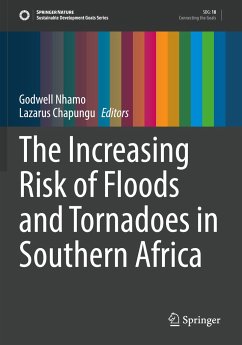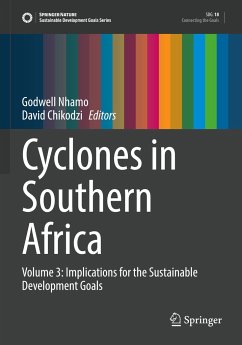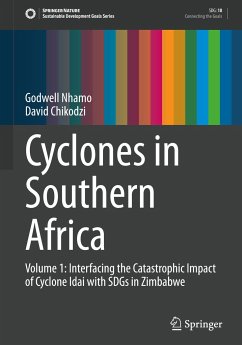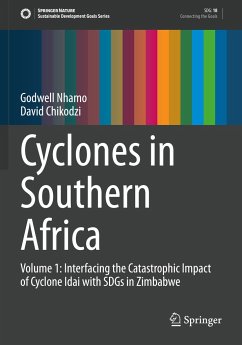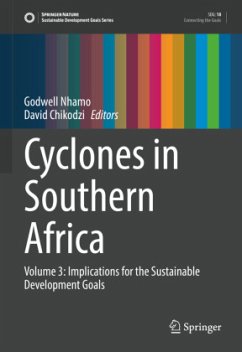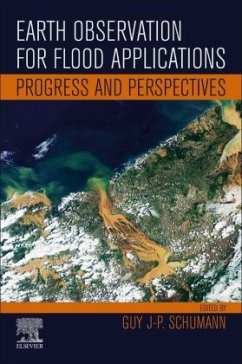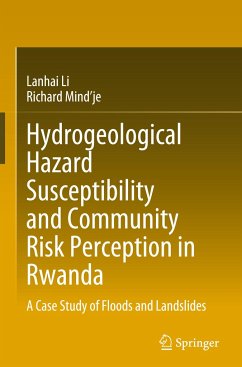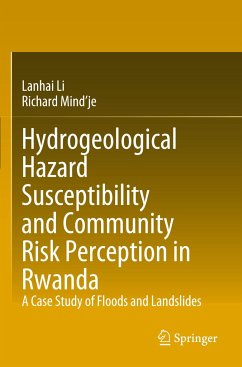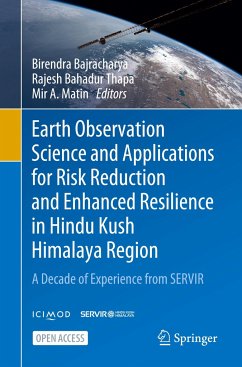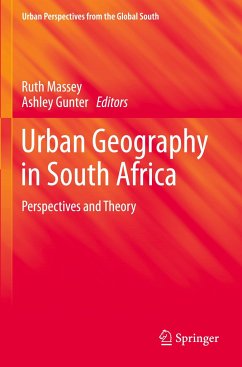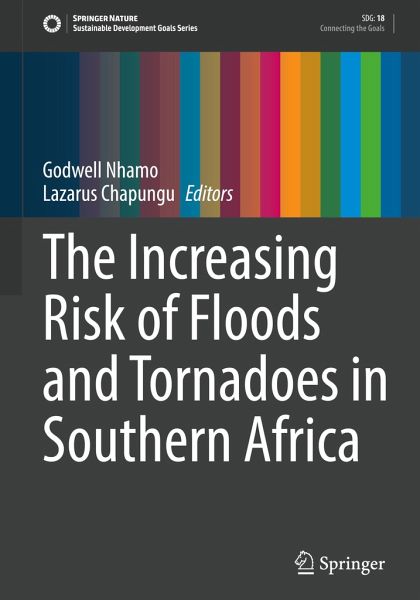
The Increasing Risk of Floods and Tornadoes in Southern Africa

PAYBACK Punkte
57 °P sammeln!
This volume discusses the increasing occurrence of floods and tornadoes in Southern Africa over the last few years. The book discusses existing flood and tornado management protocols, indigenous approaches to mitigate disaster risk, urban and peri-urban flooding, tornado-induced flooding and windstorms, and the challenges and vulnerabilities associated with rural and transboundary floods. The book offers planning and recovery strategies to minimise impacts from these events through sustainable means. Such means include sustainable drainage systems, waste management in harbors and beaches, comm...
This volume discusses the increasing occurrence of floods and tornadoes in Southern Africa over the last few years. The book discusses existing flood and tornado management protocols, indigenous approaches to mitigate disaster risk, urban and peri-urban flooding, tornado-induced flooding and windstorms, and the challenges and vulnerabilities associated with rural and transboundary floods. The book offers planning and recovery strategies to minimise impacts from these events through sustainable means. Such means include sustainable drainage systems, waste management in harbors and beaches, community engagement in flood-prone areas, and improved food security measures in urban poor households.



